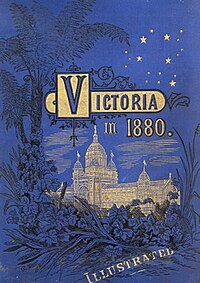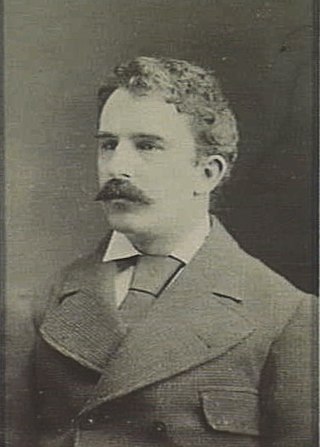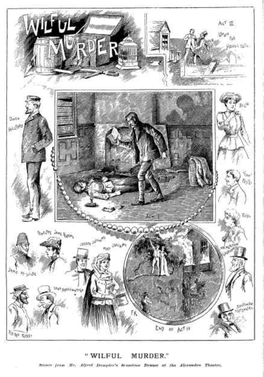
Garnet Walch (1 October 1843 in Broadmarsh, Van Diemen's Land – 3 January 1913 in Melbourne), was an Australian writer, dramatist, journalist and publisher. The youngest son of Major J. W. H. Walch, of H.M. 54th Regiment, [1] he went on to become the most popular, and arguably the most successful, writer for the Australian stage during the 1870s and 1880s, While many of his works were localised and updated adaptations (notably his pantomimes), it was his ability to tap into the public's mood and desires by expressing sentiments and making satirical allusions that made his works so popular. Walch wrote a wide array of genres and forms, including "serious" dramatic works, comedies, pantomimes, burlesques, melodrama, and comediettas. [2]
Contents
Throughout his career as a dramatist, Walch wrote for and collaborated with many of Australia's leading theatre industry practitioners of the period. His list of creative associations reads like a Who's Who of late 19th century Australian theatre: Harry Rickards, George Darrell, Alfred Dampier, Richard Stewart, William Saurin Lyster, J. H. Rainford, Mrs G. B. W. Lewis (aka Rose Edouin), and Alfred Sylvester. He also wrote works for the Melbourne Theatre Royal's fluid management of Henry R. Harwood, Richard Stewart, J. R. Greville, John Hennings, and George Coppin, as well as for J. C. Williamson and scenic artist-turned manager W. J. Wilson. Several high-profile actors also benefited from Walch's writing talents, none more so than Bland Holt. Further to this, several of his works were adapted by others, including Archibald Murray's Harlequin Blue Beard, The Great Bashaw (1872); Samuel Lazar's Hey Diddle Diddle The Cat and the Fiddle, the Cow Jumped Over the Moon (1878); and the burlesque Sinbad the Tailor (1881), adapted from Walch's 1880 pantomime Sinbad the Sailor. Walch's non-music theatre works include "Heart and Head" (sketch, 1881), Proof Positive (comedietta, 1883), and possibly the Harry Rickards-produced comic play In A Fog (1890). [3]
In addition to his theatre work Walch was secretary to the Melbourne Athenaeum between 1873 and 1879. [4]
As a publisher, his most outstanding work was Victoria in 1880, a de luxe book with lavish engravings by Charles Turner, compiled by Walch and published by George Robertson in Melbourne, celebrating the 1880–1881 International Exhibition. The book was inscribed to The Honourable William John Clarke, President of the Victorian International Exhibition Commission.
In 1883 he went to Madagascar as special correspondent for the Argus and the Australasian .






